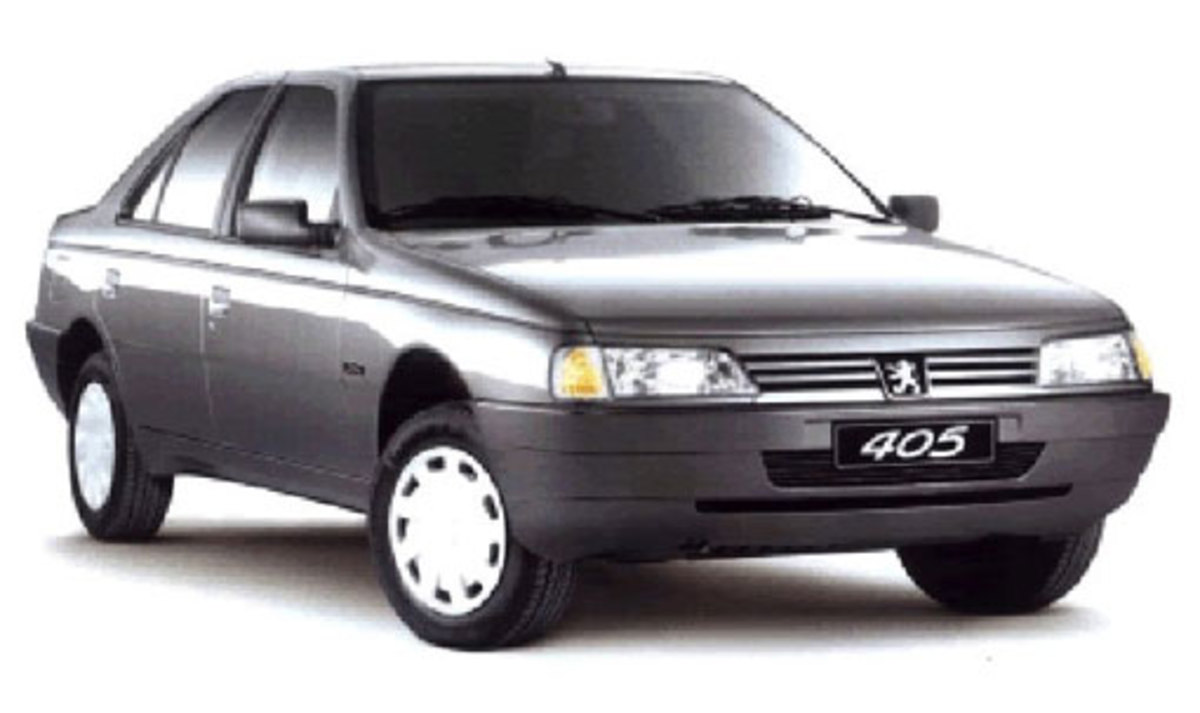What you should know before you buy a new used car or truck
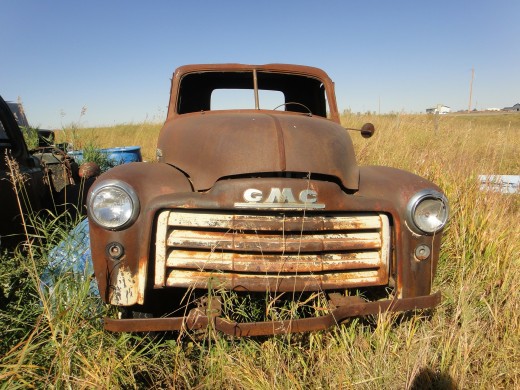
Is this your first time shopping for a new used car?


Be excited AND intelligent
All to often it's easy to forget our smart person headgear when we're faced with what appears to be a fantastic deal on a new used car. It could be a fantstic deal on a new commuter, an old classic or a super sporty specialty. No matter what gets your motor purring, it's important that you don't become so enchanted by your new used vehicle, that you forget to protect yourself from a potentially crappy car.
As you continue on through this hub, we'll cover some simple but important topics such as:
Leaving Your Funds at Home
The Engine Inspection
The In-And-Out Inspection
The Test Drive
The Lemon Check
Bringing a Support Team
Pre-Buy Inspections
The Dirty Details
The Importance of "Sleeping on it"
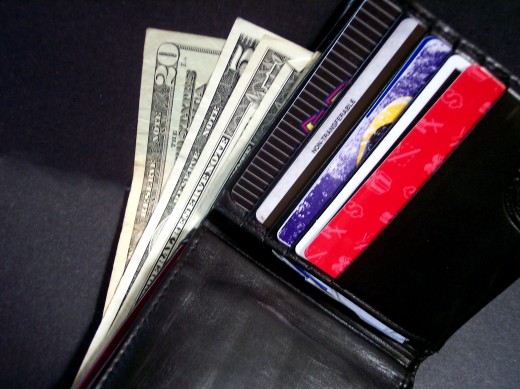
Note: Never carry cash
In fact, don't carry anything that gives you direct access to your money when you go to look at a new car. It's all to easy for a seller or dealer to get you to give up your money once they know you have it in your pocket.
On top of that, having that much money in your pocket makes it feel like you need to spend it right away, when there really is no such urgency. In fact, the more dire your situation, the less reasons you should carry cash on you. If your going to a used car dealership, leave your credit, debit and checks at home too.
By doing this, you will be much more likely to pay attention and look for potential reasons not to have to come all the way back with cash in your hands. This is the perspective you should have whenlooking to buy a new car. It's easy to find reasons why you should buy a car, it's not always easy to find reasons NOT to buy it, especially if it appears to be everything you need it to be on the surface.
Take my advice and leave the money at home whenever you're going to look at new vehicle to buy.
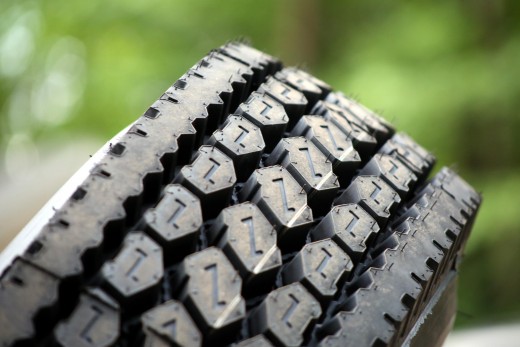
Make Sure You Check
- Radio
- Air Bags
- Seat Belts
- Spare Tire
- Body panels
- A/C and Heat
- Tire Condition
- Steering Column
- Under the carpet
- Any children's seats
- All Mirrors and Glass
- All lights and turn signals
- Doors, Hood, Truck and/or Hatch
- Make sure seats move in all expected ways
The In-And-Out Inspection
This is one of the easiest inspections to cover, though I want you to keep in mind that the devil is always in the details. Make sure you have fun while testing out the radio, accessories and rearview mirror. Make sure you also enjoy opening and closing the doors, the hood and the trunk. oh yes, and don't forget to adjust the mirrors, visors and seats.
While you're in there though, make sure that you don't have so much fun that you forget to check the steering column for possible signs of a break in, or the airbags for signs of activation or the bright headlights. You'll also want to check to see if the radio is stock, and if not, make sure it is installed tightly and that there doesn't appear to be any scratches around it. Equally as important, check to make sure the seatbelts are in good health and that they latch with no problems.
As you climb out of the car, put a good deal of weight on the door to check the hinges, and close it as lightly as you can, to gauge how healthy the door locks are. While you're at it, put the key in each lock and make sure they all work easily.
This guy is hilarious and informative
Engine Inspection: for the Mechanical Minded
If you're a little more in tune with the inner workings of the modern engine, then you're going to have an edge when it comes to purchasing used cars and trucks. That being said, being mechanically minded and able to use automotive tools, doesn't necessarily mean you know what to check when buying a new used car. If this is you, in addition to the easy stuff on the list to the left, this list is for YOU:
- OBD Codes - OBD code readers are cheap and easy to get these days, especially an OBD II (2) code reader, which is what most cars 1996 and up are going to have. They are super easy to use and well worth the time and small expenditure. You'll find most OBD II plugs just under the dash panel, directly above where you're ankles would sit while you're driving. Plug that bad boy in, turn the car on and check for codes.
- Oil Leaks - This is a very commonly over looked issue, even by self-proclaimed mechanics. Whenever you're buying a used car, you always want to check for oil leaks and build up. It might not result in deal breaker, but it can help you negotiate price and at least you'll be aware that there is a problem. Check for leaks around the valve cover gaskets, oil pan and rear main seal (where the engine and transmission meet). Repairs in those areas can cost anywhere from $150 to $1250 depending on how DIY you are and how bad the issue is.
- Exhaust Check - Make sure there are no obvious holes in the exhaust pipe and that the pipes are attached properly and not rattling at all.
- Fluid Colors - These are pretty important considerations and can tell you a lot about the engines health. Check the oil visually and by smell. If it's super black or smells burnt, it hasn't been changed regularly at appropriate intervals. You also want to make sure the oil doesn't have any white creamy looking stuff on either the dipstick or inside the oil cap. Next, remove the radiator cap and make sure it's full and green, with no milky colored fluid. Creamy or milky fluid in either the oil or coolant can signal a head gasket or cracked block. Last but not least, check the transmission fluid. Make sure it's not really dark red and doesn't smell super burnt. It's also good to check for any tiny metal flakes on the dipstick. Heavy burnt smells or metal flecks can signal a transmission in poor condition.
If you want to get crafty and thrifty, check these out too:
- Fuses - Check the fuse box in the car and any fuses in the engine compartment. Just make sure not to remove any from the engine compartment that are labeled "do not remove" or that are difficult to remove. Chances are, if they don't pop out with a moderate tug, they shouldn't come out unless it's necessary. Other than that, have fun checking to see that the fuse boxes are corroded anywhere and that there aren't any blown or really old fuses. This isn't usually a big issue you'll find on most used cars, and there's not much to negotiate even if you find something, but it's a great tactic that can make it look like you really know what to look for, even if you really have no idea.
- Battery - On the battery, you want to check two things: the terminals and the volts. The terminals are easy enough, as you're just checking to see that the terminals aren't seriously corroded, worn out, broken or lose. To check the voltage, you'll want a multimeter, and you'll want to check that the battery is gets between 13.8 (okay) and 14.5 (better) while running. You want to see 12.5 to 13.8 when the car is off.
- Alternator - With you're alternator, you'll want to use your multimeter again (making it worth the $15-30 value), and check that it's getting between 13.8 and 14.8 volts while running, Don't think that because the car started, that the alternator is fine. It's worth double checking to avoid starting system problems later on.
- Worn Out Belts - Under the hood, at the front of the engine (which would be the side on a front wheel drive engine), you'll see some black belts. They belts are an important part of several components of your engine. Check them to make sure they aren't super old, cracks, broken or worn out.
Engine Inspection: For Novices
If you really don't know much about the modern combustion engine or really don't care too, this list will help you check for some of the most obvious warning signs of a problem engine. If nothing else, you can use any issues you find, as price points in your favor. We'll start with the three most important issues to look for and also the easiest things to check, and then list some more easy issues to look for, so that you know what to prioritize if short term memory isn't your forte either.
- Easy Starting - Get in the car and start her up a few times. If you have to let it crank a few times or more, than can signal an issue with the ignition, starting or fuel systems and those are not issues you're going to enjoy uncovering later on. Thankfully, most of these issues can be easily repaired at a shop or by a knowledgeable friend and aren't necessarily deal breakers, but that it doesn't mean it won't cost you a pretty penny.
- Mileage - Check the odometer to see how many miles are on the vehicle. You'll generally get 2-5 years out of a used car if there are no more than 125,000 miles on it, without any major needs during that time (if the rest of the car is in fair condition). Any more than that, and you could potentially see major engine or transmission issues that could cost you a lot.
- Working Gauges - Make sure the gas, temp, speedometer, odometer and any other gas gauges work. Most important is the speedometer, as you can get in trouble for not knowing how fast you're going. Though I can't tell you how ridiculous it is to operate a vehicle without a working gas or temp gauge. It can be done, but it really shouldn't and they aren't always cheap or easy fixes.
Generally, the above 3 inspections won't lead to deal breakers in most shoppers minds, though they are great points to bargain on. If the engine has any leaks, noises or high mileage, you can get your sales person to throw in a deal to fix any issues before you drive away or at an agreed upon later date. If they can't do anything about the issues, then you can talk them down in price because you'll have to pay out of pocket to fix the issue yourself. Even something like old oil stains could lead up to an issue than might cost you a couple hundred bucks. So don't let them brush of any obvious issues or make you feel bad for bring them up.
Some other engine issues to look for:
- Engine Noises - Make sure you test drive goes for at least 10 miles, with a little bit of in city and a little bit of freeway driving. While you're driving, try it with both the windows up and down. This will allow you to listen for any squeaks, stutters, groans, squeals, ticks, knocks or other unusual sounds from the engine.
- Clean Air Filter - Some air filters might be a little too in depth for the average driver to check, but if you know what you're looking for or you don't mind pushing your sales guy to do it, then it's a good idea to check. Most dealers will have the air filter changed, but if they don't, that can signal that they might not have fully inspected the engines mechanical issues. Not to mention, most air filters cost an upwards of $15 and that's something you can usually get thrown in before you sign.
- Strong Gas Cap - You'd be surprised how many used cars have issues with their gas caps, and how many times I've seen otherwise decent cars fail their emissions tests because of faulty or broken gas caps. Not to mention the lost mileage from lost gas vapors. Take the gas cap off and put it back on once or twice to see if it works well. Check for any rusty outer rings while you're there.
- Engine Warning Lights - While many used cars have engine warning lights that never turn off anymore, even though the car is fine, that doesn't mean they aren't signalling a greater problem this time. You can see these lights on the dash of the car when you turn it on. Most importantly, you want to make sure the Check Engine, EGR, ALT or Oil gauges are not on. If they are, find out why and work that into the deal or walk away.
Whether you check for these issues yourself, which is often the best thing to do, make sure you at least ask about any of these issues. If a seller doesn't disclose any known issues, that's considered fraudulent and can help you later if you find out you have a lemon.
Usually though, issues like the ones listed are ways of finding out if a car is worth your money and if you can get the price knocked down at all. Once you're aware of any issues, you and the seller or salesperson can decide what the deal breakers and bottom lines are.

What about used cars for sale on the side of the road?
Used cars on the side of the road are a whole different ordeal, but that doesn't mean they aren't worthy a look over. In general, anything you have access to, you'll want to check. Most folks don't leave their cars unlocked on the road, so you usually won't have access to the interior or the engine compartment, but that doesn't mean you can't look everything over and decide if it's worth calling to get more info. Check out the overall condition of the body and glass of the car, as that can tell you what sort of care it's had. Then check under the car for any fluid leaks or stains on the engine. Follow that up by taking a look at the brakes, wheels, tires and lights. The brakes should be shiny to show the car hasn't been sitting. The wheels and tires should be in good condition. Plenty of tread and not too many dents or scratches. With the lights, just make sure they aren't cracked or full of water.
Test Driving!


This is where the car auditions for you. It's also the only opportunity you're going to get to see what the vehicle is made of, or if it has any obvious defects. Make sure you don't skimp on the test drive. It might make the salesperson or seller in your passenger seat a little nervous, but with a thorough test drive, you won't be so nervous when you hand over your cash.
Most folks are very timid with test drives, because they haven't bought the car yet, but the last thing you want is to do just a tiny one block test drive and assume everything is good. There are plenty of ways to cover up serious problems that won't show up until the car has gone at least 10 miles. So make sure you get a good drive in, even if you have to put a little gas in it.
While you're test driving, make sure you test out things like:
- Turning
- Parking
- Reversing
- Hard Stopping
- Shifting through all gears
- Driving with all accessories on
CarFax's are no joke. A friend of mine went to buy a truck from a used car dealership and never even thought to get a CarFax or any sort of vehicle report. It wasn't until he tried to refinance the truck that he found out that the truck had been in a major accident where the airbag had been deployed. This not only meant that he payed five times as much for the truck than it was worth, but that no one would refinance the truck until it was almost paid off, because they knew they couldn't get any value from the truck if for any reason he had to give it back. Had he known about lemon laws, CarFax's or sales fraud, he could've saved himself the time and money he spent getting pressured and hoodwinked into buying this truck.
The Lemon Check
Get a CarFax before you sign or agree to anything! This is a simple but vital part of buying any used cars. A CarFax report will tell you about any accidents the vehicle has been in, if it's ever been totaled or if there are any major issues with that car in particular.
If looking at a car or van at a used car dealership, you should be able to get a free CarFax report from them. That being said, that's the last thing they want you to know, especially because they often don't want to tell you everything about the car, even though they are supposedly required to disclose everything about the car before you buy it. So make sure that's the first thing you ask for. If you're going private party, you'll probably have to purchase your own report, but it'll be absolutely worth every cent.
It's also good to check the value and any known manufacturers defects or recall notices, which is something to check when you get home. Most dealerships will tell you everything is fine or that they'll "take care of you" if there are any defects, but this is just rhetoric. Make sure that you never buy the first time you check out a car and if you really like something, go home and check on the street value and manufacturers recalls. This will give you confidence about what you're really getting into and will also help you negotiate price whether in a dealership or out with a private party deal.

Bringing a Support Team
There's two rules you should always keep in mind when you go to look at a new car.
1. Don't buy anything when you're desperate for a car. In fact, if you're that desperate, don't even shop for one. Wait until you can calmly and objectively go out and look for your next ride.
2. Bring a few friends or family members with you. Make sure they know how you need them to support you, so that they can do just that. I prefer to have someone be there to remind me to "Sleep on it" and another person to remind me what my price and value points are, so that I don't get talked into something I don't need or can't afford, especially if you really are desperate.
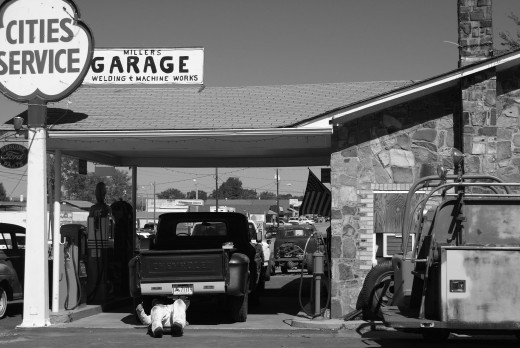
Pre-Buy Inspections
You can test drive the car right over to your preferred mechanic, or you bring along a mobile mechanic to look everything over while you're there. Either way, make use of the hundreds of mechanics who are ready to help you. Just like a CarFax, mechanics are your absolute best friend when it comes to used cars. There are so many things to check out, and while you can do most of it, it's worth while to bring an experienced mechanic who knows exactly what to look for. This will ensure that you get a mechanically sound vehicle, or that you at least know what sort of issues you might deal with if you get an "as is" type of deal. On top of that, having a friendly mechanic come with you will make the sales guys sweat, even if nothing is wrong. I know, I've been that mechanic for folks before.
Only $500 down!
Be ultra careful with gimmicks designed to get you in right away. Many used car dealerships will offer a super low "down payment" option that is incredibly cheap, like $500. They'll tell ya you can bring in $500 cash and leave with a car and a payment plan. Many even offer the same deal if you have horrible credit and no banks will finance you.
Some of these deals are exactly what they say they are, but most are not. They'll tell you it's only $500 down all day long until you get in there, and then just before you sign on the dotted line they'll ask how you plan to pay your $1000 or $1500 down payment. When it comes to this dirty detail, make especially sure they WRITE IT DOWN before you sign anything.
The Dirty Details
If you're going through a used car dealership, you need to be particularly careful of the dirty little details. Dealerships are famous for making all sorts of promises and deals, but then conveniently forgetting to tell their contract writer about them. If you don't remember to tell them, or you don't get all those lofty promises in writing before the contract writing, then you're going to be SOL.
You can bet that every dealership is going to include all sorts of clauses and notes that will protect them, such as "as is" contracts. So make sure that you get your own fine print included IN WRITING. In fact, anytime the salesperson promises you something or says that the vehicle is or is not a certain way or has certain things, get them to PUT IT IN WRITING. If they dance around it or say they'll do it later, then you write down everything they are saying and have them sign and date the bottom in front of witnesses before you're done. If they try to say they're good for the deal without it being it writing, they think you're an idiot. Don't fall for it.
If they promise you 4 matching tires, don't forget to require that they match in size AND brand. Then get it in writing. If they assure you that their mechanic looked over the entire car before you bought it, get that in writing. If they say that they'll fix that broken head light the following week after you buy it, get the promise and resolution date in writing.
There are other details to be concerned about as well. If your used car is still really new, they might offer you GAP insurance. No matter what age it is, they're likely to try and get you to buy into an extended warranty. Make sure you do your research on whatever they offer. Get this information the first time you go shopping, that way you can look it all up when you go home, instead of being surprised by it when you get your pen out to sign on the dotted line (which is the way the dealership prefers it).

The Importance of "Sleeping on it"
As we've already learned earlier, it's never a good idea to go car shopping when you're desperate. If anyone has told you that your circumstances (like credit) are so horrible that you'll never find a better deal than they can offer you, then they are dirty rotten liars. There is always another person or another dealership who can give you a good deal, even if you have to go a little farther away or wait a little while longer. Not to mention, in most cases, when they try to sell you something "right now" and say it won't be there the next day, it's because they don't want you to have the chance to research the vehicle or it's value. The vehicle is nearly guaranteed to still be there the next day, and the next and the next and the next.
Sales professionals are trained at the art of pressuring you into buying, especially in covert ways that don't make it seem like they are pressuring you. They make it seem like they are just trying to help you out, when they are really playing off of your fears. Don't let them do this to you and show them that you will not let them do this to you, by going home and sleeping on it, even if you know without a doubt that you're going to buy a certain car or truck. You'll need to anyways, because if you listened earlier, you won't have any cash, cards or checks with you.
Before you leave the lot, make sure that you get the Vin#, make, model and year of any vehicles you really loved. Make sure you also get the name of the dealership if you go to one, and the name of the salesperson you were working with. Then when you get home, do your homework. Double check the vin# to make sure there are no big reports, get a CarFax if you haven't already. Then do a yelp and BBB check for the business, salesperson and/or private seller. This is also an appropriate time to check into manufacturers defects and recalls. This is the only time you'll be able to build extra negotiation power. If you find that the car you wanted is priced at $10k, but the truck is only sellable for $5k private party, then you're getting ripped off. You can offer the sales person a chance to lower the price to match the average private party sale, or you can go somewhere else and find it for a more reasonable deal. Likewise, if you find out that the valve cover gaskets tend to wear out quickly or have a defect, you can negotiate that the dealership have it fixed before you buy it, or you can ask the private seller to drop the price for the amount of labor and parts to get that replaced.
Trust me, leaving a good 24 hours in between your new used car purchase can seriously save you. Don't take it for granted.
Pressure them instead!
Whether you find yourself with a "nice" salesperson or an aggressive one, it's you're job to not allow them to pressure you. The best way to do that, is to politely pressure them instead.
Now, to be clear, when I suggest this, I don't mean that anyone should be rude, impatient or negatively manipulative. It's simply important to recognize that there are very few vehicular sales persons in our modern age, who have not been trained to manipulate and pressure you. There are a few good folks out there who want nothing more than to help you get what you want and can afford, but they are few and far between. If I had to tarry a guess, I'd say that they are less than 1% of all the population of automotive sales folks out there.
With that in mind, it's important to recognize that even if it isn't obvious that a sales person is pressuring you or not, they still are. Traditionally, automotive sales was a high pressure gig. Though in modern times, people have turned away from high pressure sales tactics, especially in light of the fact that there are so many places available for them to buy a car from. Sales folks know that if they pressure you outright, that you're going to leave and go somewhere else. So they are trained in the art of covert manipulation. Instead of pushing you into something outright, they work to build rapport so that they can learn your emotions and mannerisms, and then use them against. So even if a sales person seems ultra sincere and like they are only there to help you out, the likelihood is that they are just very good at their job.
There are only two ways (that I am aware of) to protect yourself from this covert manipulation:
- Being aware of modern sales tactics and using it to your advantage
- Don't buy cars from any sort of dealership
Used car dealerships have many more options and are a dime a dozen, plus they give most people a safer feeling. Because of this, most folks choose to purchase their used vehicles from dealerships. So with that in mind, it's important that you know how to turn the tables in your favor if you decide to go through a local used car dealer.
A good way to look at the situation, and remember it when you're there, is to think of a dealership like a casino. Your interactions with the sales floor is like you playing casino games. It's vital to remember that all the games are rigged in favor of the casino. Now, you can't win if you don't play, so you have to play. The important part, is knowing how to play to win. In the car sales game, this means:
- Being prepared to take your money and run before you lose
- Doing your research about the game you're playing
- Keeping control over your tells
- Not being afraid to bluff
If you translate it, it means that you need to look for reasons to leave over reasons to stay and if your sales person isn't negotiating towards what you want or is dancing around giving you a straight answer, you need to be ready to leave immediately. It also means knowing what you're walking into. Make sure you research the dealerships you want to visit, the sales people who work there, the cars they have that you might buy, etc...
Your 'tells' in this instance, are your emotions. If the sales person can too easily tell when you're excited, displeased or frustrated, they'll use that to their advantage. You can take away that advantage by keeping control over your emotions. The sales persons job is to get you excited about their cars and to get you to associate their cars as yours before you've even purchased them. If you can keep control of your emotions and mannerisms, they won't know if they've got you hooked yet and will try harder to please you. This usually results in them being more willing to work towards giving you what you want, over trying to get you to want what they want.
Misdirection is the sales persons "bluff" and if you learn how they do that, you can counter that bluff with your own. Namely, by always directing the conversation back to what you want and then asking them to put it in writing.
Asking your sales professional to put anything in writing is the biggest amount of pressure you can put on them, and you can be the nicest, softest, least pressurized person ever. It doesn't matter, when you hold them accountable for what they are saying to you, they get worried. In most cases, this is because they know that they can tell you pretty much anything they want, and it won't matter unless it all goes into the contract. 9 times out of 10, people forget to put each promise into their final sales contract and leave the lot signing an "as is" contract that didn't include all those lofty promises. By the time you realize you didn't get everything they promised you, it'll be too late. They tell you they can get you those great deals at cost and conveniently forget that they promised those extras would be a part of the original deal in the original price tag.
Protect yourself from this by asking them to put everything in writing and writing it down yourself so that neither of you forget. Additionally, you can usually tell how honest your sales person is about what they are selling you and promising you, because they are less likely to sweat it when you ask them to write down their offers. If they get really hot under the collar, it's likely that they aren't sure they can uphold their promises or that they were hoping you'd forget about them before they got you to sign on the dotted line.
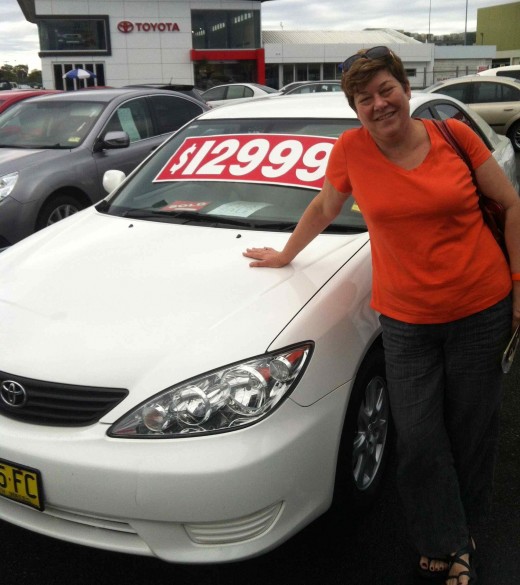
Private Party vs Used Car Dealership
When it comes to choosing whether or not to purchase your new used car through a dealership or from a private party seller, it's really a matter of preference and preferred risk. In either situation you can find fantastic deals and great vehicles. Likewise, in each situation you can get so completely screwed it'll make your head spin. When it comes down to the brick and mortar, what you need to consider are these elements.
Pro's of Purchasing through a Dealership:
- You often can purchase an extended warranty
- You'll have more vehicle choices in one location
- Most used vehicles are thoroughly inspected mechanically
- If you know how to negotiate, and the car still has some issues when you find it, you can often get the dealership to fix them within the original purchase price.
- If you don't have cash or strong credit, you can often find a dealership that can finance you.
- You can usually get a free CarFax through a dealership
- Dealerships always have a Title and proper paperwork for the car you buy.
- You can often trade-in your old car towards the purchase of your new car.
Con's:
- Even the "no pressure" dealerships are often very pressurized in their sales tactics.
- Most dealerships will attempt to talk you into all sorts of unnecessary "extras"
- Dealerships often price their cars at a much higher value than they are worth
- Attempting to redress fraudulent issues in court is complicated and difficult
- Most dealerships require that you purchase insurance and pay taxes and various other fees before you leave.
- Bigger used car dealerships will often try to get around telling you about any serious issues with the vehicle and pretend they didn't know about issues like air bag deployment
- Used car dealerships will often try to talk you into getting financed through them or a bank that they work with, and this often means higher interest rates than you could get on your own.
- Your vehicles title goes to the bank or financier until you pay off your car loan.
- It's much easier to get distracted at a dealership and talked into something you didn't really want and/or cannot afford.
Pro's of Private Party Deals:
- You're likely to get a much better price on the same vehicles found at dealerships (ex: a car at a used dealership is $5999, but a private seller has the same exact vehicle for $1500)
- Private party sellers tend to be more honest and open than sales professionals (in most cases), and aren't worried about making a big commission on the sale.
- You don't have to purchase insurance or pay taxes/fees at the same time that you purchase the vehicle.
- If you find a problem with the vehicle later and can prove they had to know about it and didn't tell you before you bought the car, it's much easier to get redress in a court than with a dealership.
- Private party sales are generally very low pressure.
- It's often easier to negotiate a price that fits your budget, especially with a seller who wants cash quickly.
Con's:
- Banks do not like giving out loans for private party vehicles unless you already have stellar credit and are borrowing more than $5k
- Not all cars you find through private party deals have been kept track, meaning some accidents and issues like flood damage might not be disclosed on a CarFax.
- Private party sellers are not always knowleable about the cars they are selling, and won't always be able to tell you if there are any serious issues to worry about.
- Not all private sellers have a clean and clear Title in their name.
- Private sellers cannot offer warranty's or guarantees.
- You have to take care of your own "details", such as Title transfer, taxes, tabs, repairs, etc...
Tips for finding the right used car dealership
One of the biggest mistakes anyone can make is to choose one dealership and then waltz right in. One of the second biggest mistakes a person can make is to buy from that same dealership. Is there a third big mistake you ask? Why yes! The third biggest mistake you can make is allow any dealership or sales person to convince you that they are the only ones who can help you, especially if they are the only first, second, third, fourth or fifth place you checked with. I know this is a bit exaggerated, but I've seen this sort of thing happen all too often. You have limited funds, or bad credit or you've never purchased through a dealership and the whole process gets overwhelming. Many places will deny you and then you find that one place that says they'll help you no matter what. They seem like your best friend until you get there and find out they don't have what you really wanted and can't get it to you for what you can really afford, but by that time you're so desperate (or they play on your emotions until you feel desperate) and then they convince you that they are your only friend.
Don't fall for it! Seriously! If you find yourself in that situation, run! Run like you're being chased by a stampede of elephants!
Instead of falling into that trap, you can prepare yourself ahead of time by following these hot tips:
- Look for small local used car dealerships first. Avoid any used car dealerships attached to bigger dealerships. If you've checked with more than ten very local small dealerships and they don't have what you want or can't help you credit wise, then branch out into other cities and check out their small dealerships. Here in Seattle, cars are often super pricey even at small dealerships. Though if you are willing to drive about an hour south, you can find tons of great deals in Tacoma or Puyallup, which makes it worth it.
- When you start looking for your small local dealerships, try checking online first. Most dealerships keep their websites very up to date and this will tell you if they have what you want before you even get there. While you checking, look for websites that show the price of the vehicles. If they don't show prices, they are probably more over priced than usual.
- If you see a few cars that you want in the price range you can afford, give that dealership a call and ask questions about the cars you are interested in and what financing options they have. If they give you the run around and just tell you to "come in", do the opposite and call someone else. Honest sales professionals know that you'll trust them more if they can answer your questions on the phone first.
- Check out reviews, complaints and the BBB to see if the dealership you want to go to, has a strong rating and doesn't scam people.
Tips for spotting a good private party deal
Whether you're searching on Craiglist, your local newspaper or looking at a car on the side of the road, there are some key things that will tell you if you've spotted a good deal before you even talk to anyone.
- The vehicle is advertised as having a clean and clear Title and Tabs
- The vehicle has less than 150,000 miles on in it
- The vehicle is at Blue Book value or just under it
- The body of the car isn't too beat up
- The ad says "serious buyers only"
- If online, there are pictures of every element of the vehicle (interior, exterior, engine, etc...)
- If online, there are plenty of details about the good, bad and ugly of the car
Caution: "Bad or no credit, no down payment used car deals"
Not all gimmicks are fake, but many are, which is the main thing you want to be concerned with. The other thing to be aware of is simply that if a dealership is offering to sell you a car even if you have bad credit, no credit or no down payment, they will have other strict requirements. Things such as:
- You will need to have held down steady employment for 3 months to 2 years (depending on the dealership)
- You'll need to be earning three times the amount that you'll be paying for the car (sort of like apartments)
- You cannot be currently signed on for any other large loans (house, other cars, etc..)
- They're going to hit you big time when it comes to interest on your loan.
This article is copyright protected (c) 2016
This article is copyright protected. Do not copy this article in part or in whole without including a direct link back to this original article. Any violators will be reported immediately.





